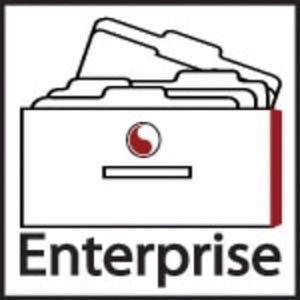I’m at the Office 2.0 conference in San Francisco, where day 1 has just concluded. As with all conferences, the most valuable parts have been the discussions outside of sessions. And I can tell you that the corridors have been humming here. The conference is a who’s who of business-centric cloud computing – everyone here believes that the future will exist in the clouds.

Here are some of the sessions I’ve enjoyed today, including the Google keynote, Project Management 2.0, and Money 2.0 (with video embedded below)…
Google Keynote
Matthew Glotzbach (Google Enterprise) listed the ten things that he can do in the clouds today that he couldn’t do a year ago. It was a very Google centric presentation – but nonetheless a good reminder of how far we’ve come in a short space of time. Matthew’s list included:
1. Having access to everything on the go – iPhone
2. Being able to search through all my email – Gmail
3. Chatting with customers and partners – in any language – Matthew gave a very cool live demo of inline translation of chat!
4. Collaborating simply Google products Sites and Docs
5. Organising travel – (the only non Google product making the top 10 – TripIt)
6. Easily collecting data from co-workers and customers using Google forms
7. Building a scalable business application on the cloud platform
8. Using online templates for docs, spreadsheets and presentations
9. Running fast, secure and stable web apps (Chrome)
10. Securely sharing video in apps with Youtube for Google apps
There was lots of backchat on Twitter from attendees that it was very much a Google pitch, however it has to be said that if Google is at the forefront of cloud computing then they have a right to crow about it.
Project Management 2.0
Fellow blogger Zoli Erdos moderated the panel. The panelists were:
Dean Carlson (Viewpath)
Andrew Filev (Wrike)
Bruce Henry (LiquidPlanner)
Mark Mader (Smartsheet.com)
Guy Shani (Clarizen)
It was interesting that there didn’t seem to be a huge amount of differentiation in the offerings – they’re all perhaps fighting for the same customers.
Comments were raised around PM 2.0 bringing the end of siloed information. Participants claimed that no one is a project manager anymore – everyone is a manager, responsible for tasks.
Differentiation was drawn between mass scale PM projects that need Gantt charts, top down control massive documentation with the 99% of PM work where PM isn’t needed. New way of thinking around a federated PM model where users can work in whatever way is best for them and behind the scenes the information is federated backwards and forwards between apps.
The feeling was that project managers today spend their time battling with crappy software – PM2.0 releases them to do real project management instead of being a project secretary.
The main takeaway and one which I concur with, is that no one player will replace the incumbent product (Microsoft Project), rather there will be an ecosystem of varied flavors of PM applications that all have a share of the market.
Money 2.0
I’m biased here as I moderated this panel. However feedback from participants and attendees indicated that the panel was really rewarding. We were a little time-compressed as the previous session had run late. The participants were;
Aaron Forth (Mint.com)
Marc Hedlund (Wesabe)
Justin Kitch (Intuit)
Jeff Schultz (Bill.com)
Mike McDerment (FreshBooks)
It was hard moderating a panel which was so polarised between the consumer and business space but notwithstanding that it went pretty well. The audience was a little jaded but the participants appeared to enjoy themselves and said they got something out of it. It was great to be around the real players in this space. There was some excellent discussion around what the Money ecosystem will look like in a few years time – the value to be gained once the connectedness is all pervasive.
Check out the video from the panel below
Tonight is a party that is being hosted by Zoho – they’re announcing a couple of exciting things, one product based and one not. It’ll be yet another chance to enjoy the backchannel conversations that happen at an event like this.
You can follow Ben’s coverage of Office 2.0 on his personal blog diversity.net.nz.










